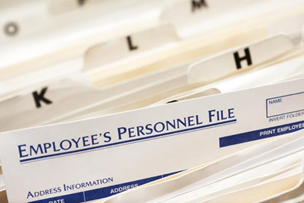When working with a Minnesota employment trial lawyer, there are many steps that will be followed before your case is filed in court. Often, your attorney will look for what is called “free discovery” or the information you as an employee are legally entitled to that will help analyze your case and associated risks.
Minnesota’s Review of Personnel Record by Employee law entitles the employee to his or her personnel file and all documents contained within. All employers that have twenty or more employees are required to follow this law. Current employees may review the files once every six months and former employees have access to those records within one year after separation. Employers must comply with an employee’s written request within seven working days (fourteen working days if personnel records are kept out of state). Retaliation for asking for one’s personnel file is, of course, unlawful. These records usually include, but are not limited to:
- Performance reviews
- W4s
- W9s
- Medical leave requests
- Vacation time used
- Benefits elected
An Overview of Midwest Personnel File Laws
Personnel file laws may vary from state to state, and our experienced employment attorney team have compiled a quick summary of other Midwest states for your convenience:
- Iowa: All public and private employers with salaried employees or commissioned salespeople are subject to Iowa’s personnel file law. Employees may have access to personnel files at a time agreed upon between employers and employees. An employer’s representative may be present. Employers may charge a copying fee for each page that is relevant to a commercial copying service fee.
- Wisconsin: All public and private employers who maintain personnel records are subject to the state personnel file law. Employees or former employees must have the opportunity to review personnel files within seven business days of submitting a request. Employers can ask that the request be in writing. An employee’s right of inspection includes the right to make or receive copies, which they may be reasonably charged for the actual cost of production.
- Illinois: All public and private employers with five or more employees are subject to the state’s personnel file law. Current employees, or former employees separated within the past year, are permitted to inspect records twice a year at reasonable intervals. Covered employers must make records available within seven business days after the request. Employers can ask that the request be in writing. An employee’s right of inspection includes the right to make or receive copies, which they may be reasonably charged for the actual cost of production.
- North Dakota: No personnel file review right for employees of private businesses, but certain rights are afforded for employees of public entities.
- South Dakota: No personnel file review right for employees of private businesses, but certain rights are afforded for employees of public entities.
Sometimes, clients and prospective clients articulate their worry that an unwarranted, previously undocumented discipline or admonishment will be stuck in their personnel file after-the-fact. If this transpires, it actually turns into a positive for the employee because it’s easy to figure out and means the employer is grasping at straws in an attempt to justify an unlawful termination through a half-hazard CYA operation.
An Overview of Relevant Supporting Case Law
A variety of cases throughout the Midwest offer a glimpse into how our legal team might approach your wrongful termination case with consideration to state personnel file laws:
- See Futrell v. J.I. Case, 38 F.3d 342, 349 (7th Cir. 1994) (the court held that it was evidence of pretext [meaning a cover-up] where the supervisor “appears to have created a catalogue of Futrell’s shortcomings after he fired Futrell and then tried to make it seem as if he had kept the notes contemporaneously);
- See also Santiago-Ramos v. Centennial P.R. Wireless Corp., 217 F.3d 46, 56 (1st Cir. 2000) (where there was evidence that a memorandum outlining the plaintiff’s performance deficiencies was created only following the plaintiff’s initiation of legal action, evidence of pretext);
- Zarnegar v. St. Paul Fire & Marine Ins. Co., Civ. No. 93-C-7744, 1995 WL 656675 at *7 n.5 (N.D. Ill. Nov. 6, 1995) (“After-the-fact attempts to provide documentation justifying an employment decision may be evidence of pretext.”).
Notice of Termination Requests
Minnesota employees can also request a truthful reason for their “involuntary terminations” in writing if one was not provided within 15 working days after a termination. The request must be made in writing to the employer and provided within ten working days following receipt. This provides us the opportunity to nail down the termination reason early in the case, without the intimidating presences of counsel, because if reasons are added or changed later in the case, the court and juries typically find that indicative of a cover-up.
Learn Your Employee Rights Today
If you feel you’ve been wrongfully terminated and suspect it may be the result of an unwarranted or undocumented discipline or admonishment in your personnel file, reliable legal guidance is vital. The legal team at MSB Employment Justice will listen thoroughly to your unique situation, so every fact giving rise to your legal claims can be explored. From there, we can advise you to the best of our ability so you can reach the case outcome you deserve. MSB Employment Justice knows this is an uncertain time, and we’re here to guide you every step of the way.



